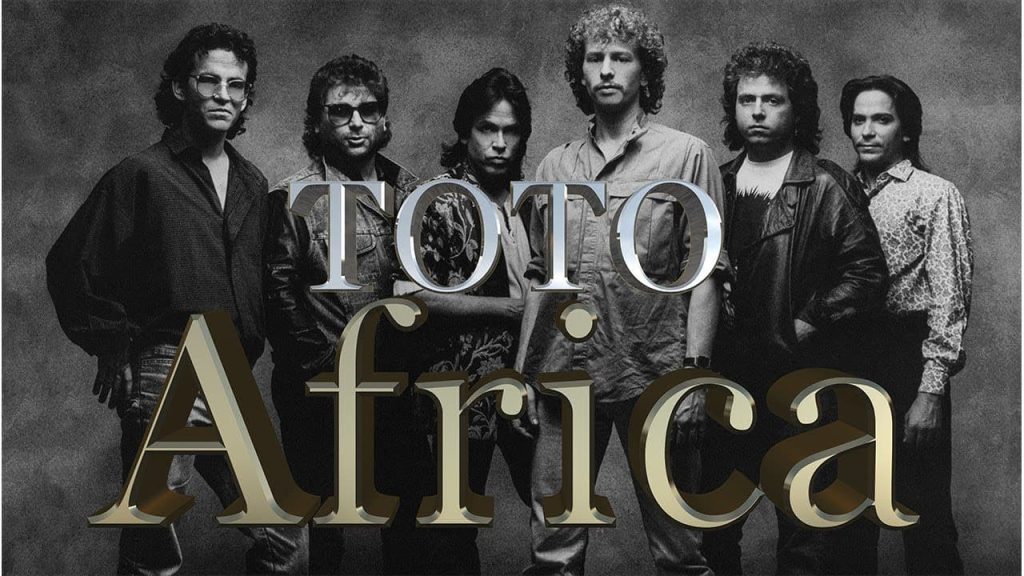
Toto’s “Africa”: A Captivating Journey Through Melodies and Mystery
Some songs capture not just a moment in time, but the imagination of generations. Toto’s “Africa” is one such masterpiece. Released in 1982 as the third single from their multi-platinum album Toto IV, the song has transcended decades to become one of the most beloved and instantly recognizable tracks in popular music history. Its infectious rhythm, haunting lyrics, and lush production transport listeners to an evocative soundscape that feels both otherworldly and deeply human. When it debuted, “Africa” climbed the charts, peaking at #1 on the Billboard Hot 100 in February 1983. This remarkable achievement solidified the band’s reputation as musical innovators, and the song’s legacy has only grown stronger over time.
“Africa” wasn’t an ordinary pop song—it was a labor of love and creativity. Written by David Paich and Jeff Porcaro, the track was inspired by Paich’s fascination with the continent of Africa, which he had never visited. His imagination, fueled by documentaries and stories, created a vivid and romanticized depiction of a land he described as “majestic and mysterious.” The lyrics weave together images of rolling landscapes, tribal culture, and the deep longing of a man torn between his heart and his sense of duty.
Musically, “Africa” is a masterclass in layering. The opening features an unforgettable marimba riff, which serves as the heartbeat of the song. This blends seamlessly with rich harmonies, lush synth textures, and Porcaro’s impeccable drum work, driven by the intricate “half-time shuffle” groove he perfected. It’s a soundscape that feels expansive, yet intimate, echoing the vast beauty and complexity of its namesake.
When “Africa” was first released, it became an instant hit, earning critical acclaim and substantial airplay. It reached the top of the Billboard Hot 100 in early 1983, marking Toto’s first and only #1 single in the United States. It also charted well internationally, hitting #3 in Canada and entering the Top 10 in several countries, including the UK and Australia.
Critics lauded its originality and production, though some initially dismissed its lyrics as overly whimsical. However, fans connected deeply with the song’s earnestness and exotic charm. Over time, its layered composition and emotive storytelling earned it widespread appreciation, cementing its place as one of Toto’s most iconic achievements.
What makes “Africa” endure is its universal appeal. The song captures a sense of wonder and longing that resonates across cultures and generations. Its chorus—“It’s gonna take a lot to drag me away from you / There’s nothing that a hundred men or more could ever do”—has an emotional weight that speaks to the power of love and commitment.
The track’s production also ensures its timelessness. Unlike many hits of the early 1980s, which can feel dated due to their reliance on certain trends, “Africa” boasts a sophisticated and meticulously crafted sound that remains fresh even today. From the shimmering keyboards to the soaring vocals, every element works in perfect harmony to create something truly magical.
Though “Africa” was a massive hit in its time, its popularity saw a resurgence in the 21st century. It became a cultural touchstone, appearing in films, TV shows, and even inspiring internet memes. Cover versions, such as the viral rendition by Weezer in 2018, introduced the song to new audiences and reaffirmed its status as a pop culture phenomenon.
Today, “Africa” is more than just a hit song—it’s an anthem of nostalgia, joy, and wonder. Whether played at a packed stadium, on a late-night drive, or in the quiet of one’s home, it evokes a feeling of adventure and emotional connection that few songs can match.
Toto’s “Africa” is a testament to the power of music to transport, inspire, and unite. Its blend of intricate instrumentation, heartfelt lyrics, and universal themes ensures its place in the pantheon of timeless classics. Even decades after its release, “Africa” continues to sweep listeners off their feet, carrying them on a journey they’ll never forget.